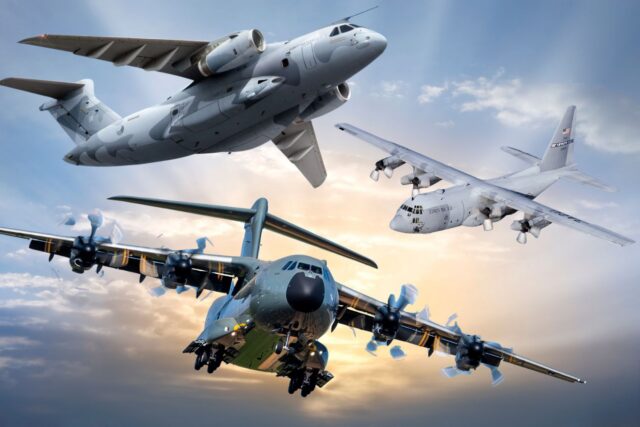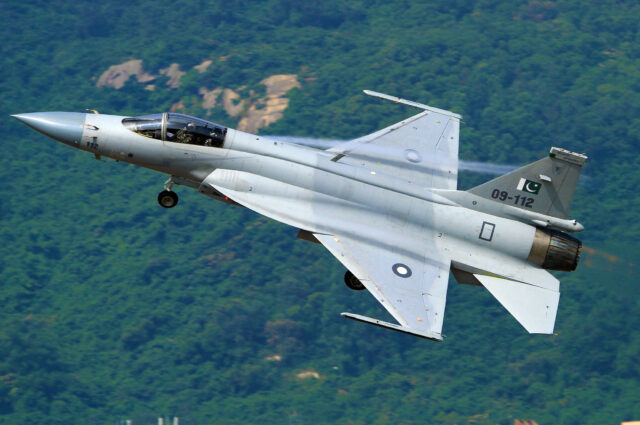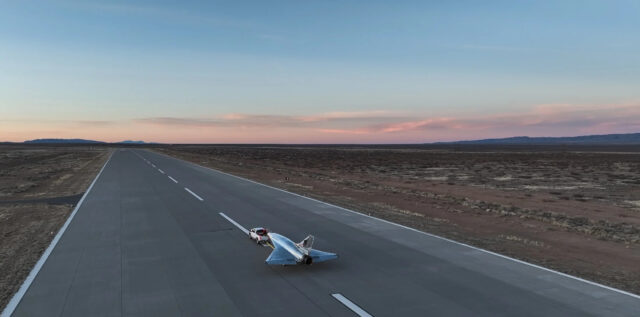Airbus to provide the UK’s new Oberon military satellites
February 12, 2025

The contract for Oberon was awarded via competitive procurement to Airbus, which is the UK’s largest Space company, and which makes a significant contribution to the delivery of the National Space Strategy. Oberon will play a key part in securing critical UK skills in the growing global space sector. The project will also help inform the procurement strategy for future space capability requirements.
But Airbus also supports British Small and Medium-Sized Enterprises (SMEs) across its supply chains, and has worked with SMEs across the UK to leverage innovative new technologies for the 400-kg satellites.
Oberon’s core-mission elements (payload, space and ground systems) will all be designed, built and operated within the UK, as will the delivery of antennas and receivers, AIT facilities, image-data processing software, and sensors. The satellites will be designed, built and tested at Airbus’ space facilities in Stevenage and Portsmouth. The project will secure scores of high-value jobs, and it has been estimated that the £127 million contract with Airbus will support around 200 skilled jobs in Stevenage and Portsmouth alone. The supporting satellite ground segment and geospatial intelligence capabilities will be developed at Airbus’ facilities in Guildford, Newcastle, Newport and Chippenham.
The spacecraft’s antennas will be supplied by Oxford Space Systems, which has developed carbon fibre structures that stow away in very small volumes for launch but which then spring into shape once in orbit. The ‘wrapped rib’ design will transmit and receive the radar pulses that are used to map the surface of the Earth.
Minister for Defence Procurement and Industry Maria Eagle said: “The contract for Oberon shows the UK’s commitment to grow one of the most innovative and attractive space economies in the world and keep our competitive edge in space science and technology. Oberon will not only support Armed Forces personnel deployed globally, but also support highly skilled jobs, delivering on the government’s growth mission.”
But the project is not just about job creation and demonstrating technological capabilities, rather it will give the Armed Forces access to the latest space-based imagery for military operations. The two Oberon satellites will provide freedom of action to the UK MOD and a greater operational capability to British and allied defence forces. The satellites will support military operations by monitoring adversary activities, and will contribute to other government tasks, including natural disaster monitoring, the development of mapping information, and tracking the impact of climate change around the world.
Space-based intelligence, surveillance and reconnaissance offers unparalleled earth observation, operating over any part of the globe. Constellations of ISR satellites can use different sensors and cameras, allowing focus to move quickly from one area of the world to another. The Oberon satellites will use active, ultra-high resolution Synthetic Aperture Radar (SAR), rather than conventional cameras, to capture imagery in all-weather conditions.
Paul Russell, Space team leader at the MOD’s procurement department, Defence Equipment and Support (DE&S), said: “This has been a superb team effort by members of DE&S, Space Command, Defence Science and Technology Laboratory, as well as industry. With the award of the Oberon contract, we will deliver the next in a series of game-changing capabilities to UK Space Command, providing the UK military with leading space-based Synthetic Aperture Radar, whilst helping to keep our nation safe and prosperous. We are looking forward to working with Airbus as our mission partner to deliver this important capability together.”
Ben Bridge, Airbus Defence and Space UK Chairman, said: “Oberon’s satellites will give the UK a much-needed sovereign capability and greatly enhance its space surveillance and intelligence autonomy. Airbus in the UK has more than 45 years’ experience in the design and build of high-resolution radar satellites and, once in orbit, these spacecraft will play a vital role in keeping our Armed Forces safe around the world.”
The system is expected to launch in 2027 and will contribute to UK information and decision superiority. It will form part of the Ministry of Defence’s space-based Intelligence, Surveillance, and Reconnaissance programme, known as ISTARI, which will deliver a constellation of satellites and supporting ground systems by 2031.
Oberon will augment and build on the capabilities of Tyche, UK Space Command’s first satellite which was successfully launched into orbit by SpaceX’s Falcon 9 in August 2024.

Our coverage of Tyche can be found at:
https://aerospaceglobalnews.com/news/first-dedicated-earth-imaging-satellite-for-uk-space-command/
A new UK-manufactured satellite from Surrey Satellite Technology (SSTL) will further augment the Ministry of Defence’s space-based Intelligence, Surveillance and Reconnaissance programme. Named ‘Juno’, the new satellite – expected to launch in 2027 – will be able to capture daytime images of the Earth’s surface, building on the capabilities of UK Space Command’s first satellite, Tyche.
Our coverage of Juno is at:
https://aerospaceglobalnews.com/news/uk-built-juno-satellite-to-bolster-national-security/
The Oberon contract was announced as UK Space Command published a series of images captured by Tyche. The images of Heathrow Airport, Sydney, Washington DC, and the California wildfires, demonstrated Tyche’s ability to capture imagery from anywhere on earth when Defence needs it.



















